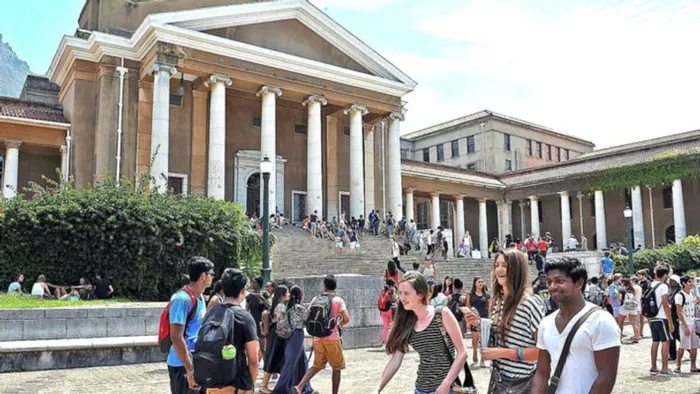
Univeristy of Cape Town.
Image: File
UCT Alumni for Palestine have described the legal challenge action against the institution over its stance on the ongoing Israeli attacks on Gaza as yet another attempt to pressure the university into rescinding its resolutions condemning state-sponsored violence and the systematic destruction of education and healthcare in Gaza.
The university has been hauled before the courts to defend two resolutions that it passed in 2024. The resolutions aimed to show solidarity with Palestinians amid the ongoing genocide in Gaza.
They include a “call, again, for an immediate ceasefire, the passage of humanitarian aid and the return of all captives as contained in the Senate's resolution of 17 November 2023; condemn the destruction of the education sector in Gaza and the massive scale of killing of teachers and university staff in the current war”.
The resolutions also express concern and opposition to any attempts to curtail academic freedom by labelling criticism of Israel or Zionist policies as antisemitism.
The alumni group said those who have been engaged in institutional discourse at UCT over the past year will have heard the objectives of academic freedom, funding and collegiality have been repeatedly emphasised by the Vice-Chancellor.
“We agree that all three are of critical importance to the university and its functioning. In our understanding, academic freedom is first and foremost protected by valuing truth over power, which in the present instance would suggest standing firm with UCT’s academics in their legitimate stand against Israel’s assault on Gaza. While the IDF resolution limits certain academic collaborations, this is an ordinary ethical consequence where academic freedom is abused to engage in human rights violations. Before 1994, our right to freedom in South Africa necessitated an academic boycott as a weapon against those in power."
They called on the university to publicly denounce the withdrawal of funding intended to “coerce or distract” from UCT’s commitment to ethical leadership and academic freedom.
UCT did not directly respond to the calls and instead referred to several statements on its position on Gaza.
In March, a motion for the Gaza resolutions and the university’s opposition to the pending Western Cape High Court case be rescinded was tabled. The Council vote was tied.
“However, as a result of the Chair’s casting vote, a further vote on the merits of the motion was permitted. By narrow majority, the motion was not carried,” the university council said at the time.
UCT spokesperson Elijah Moholola said UCT Alumni for Palestine was not a formally recognised or affiliated university structure, but rather a group of nine alumni and needed to address council to raise its concerns.
“The university also notes that the statement is incorrectly addressed to and requests a response from the executive. The university’s Gaza resolutions were not passed by either the management nor the Vice-Chancellor, but by the UCT Council. Therefore, any concerns around the resolutions would have to be directed at Council, via the appropriate existing channels.
"UCT’s position on the Gaza matter has been communicated on several occasions: first through a statement issued in December 2023; and then through Council’s resolutions in June 2024; and through an updated statement issued in October 2024. UCT has also issued statements by Council in March 2025 and by the executive in May 2025 on the US federal funding matter,” said Moholola.
CAPE TIMES